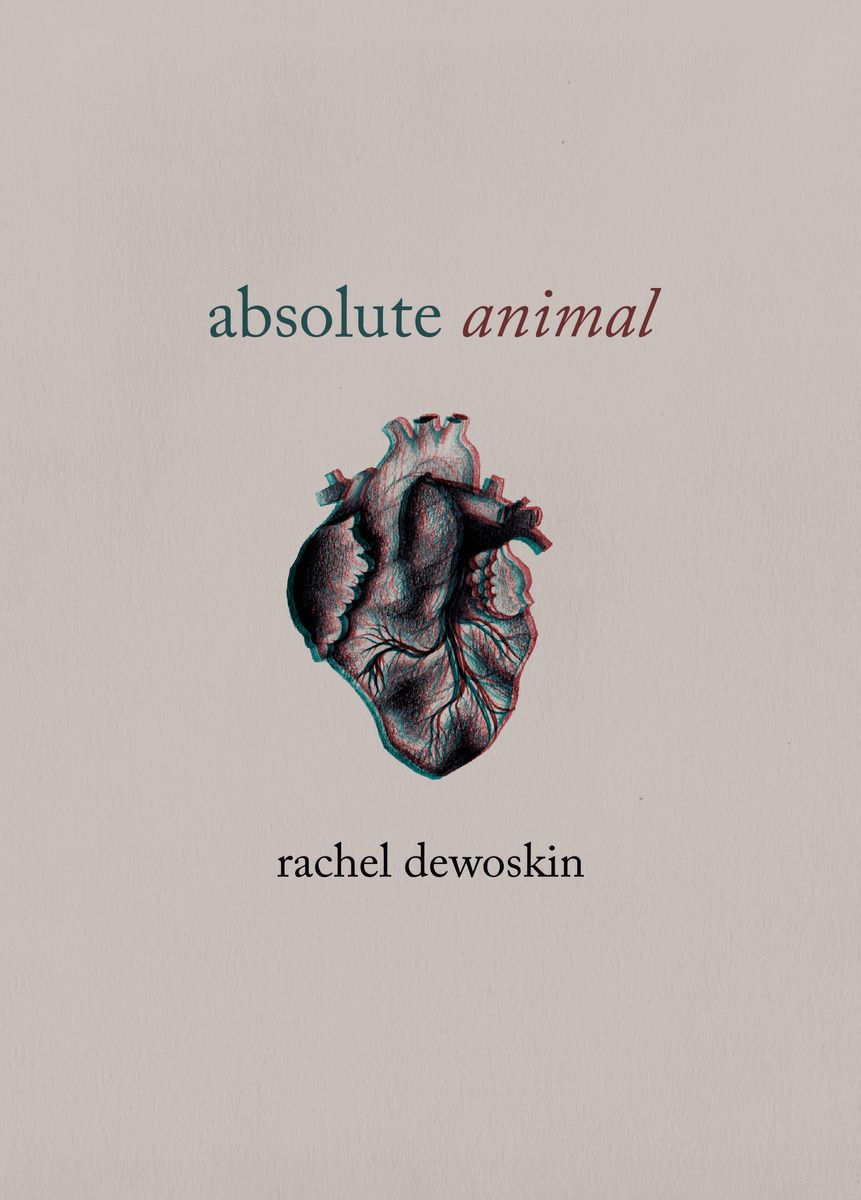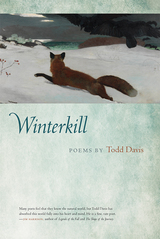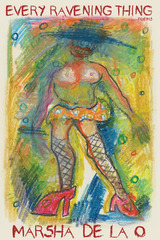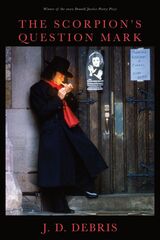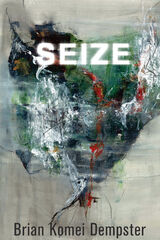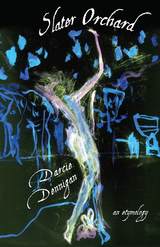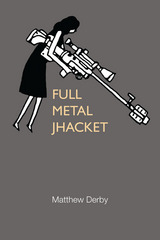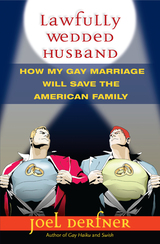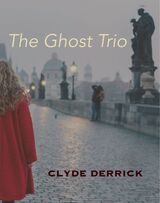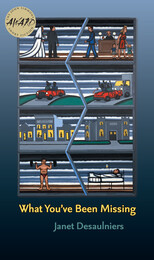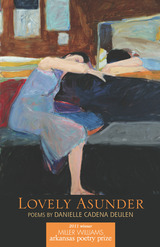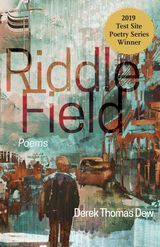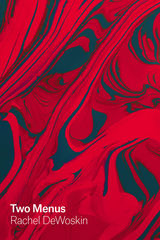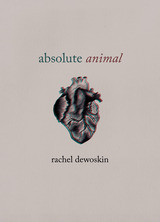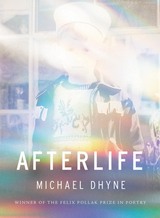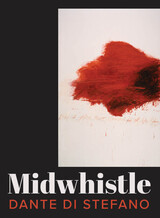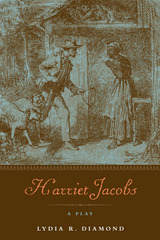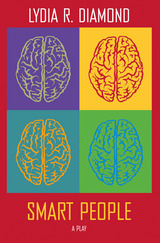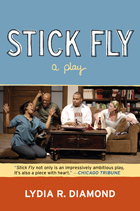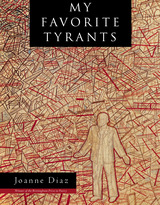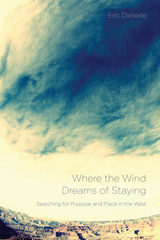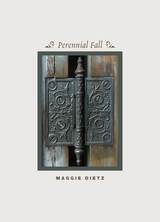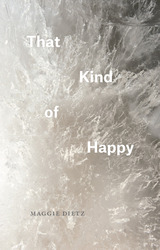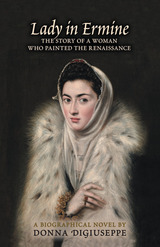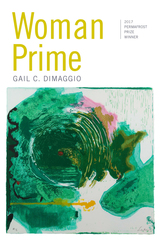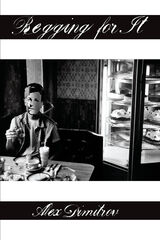absolute animal
by Rachel DeWoskin
University of Chicago Press, 2023
eISBN: 978-0-226-82906-7 | Paper: 978-0-226-82905-0
Library of Congress Classification PS3604.E927A64 2023
Dewey Decimal Classification 811.6
eISBN: 978-0-226-82906-7 | Paper: 978-0-226-82905-0
Library of Congress Classification PS3604.E927A64 2023
Dewey Decimal Classification 811.6
ABOUT THIS BOOK | AUTHOR BIOGRAPHY | REVIEWS | TOC | REQUEST ACCESSIBLE FILE
ABOUT THIS BOOK
Poems that traverse and question the lines between human and animal behavior.
Experimenting with time, language, and transgressing boundaries, the poems in absolute animal lean into Nabokov’s notion that precision belongs to poetry and intuition to science.
Rachel DeWoskin’s new collection navigates the chaos of societal and mortal uncertainty. Through formal poetry, DeWoskin finds sense amid disorder and unearths connections between the animal and the human, between the ancient and the contemporary, and between languages, incorporating translations from poems dating as far back as the Tang dynasty. From sonnet sequences about heart surgeries to examinations of vole romance and climate change, absolute animal investigates and moves across boundaries and invites us to consider what holds life, what lasts, what dies, and what defines and enriches the experience of being human.
Experimenting with time, language, and transgressing boundaries, the poems in absolute animal lean into Nabokov’s notion that precision belongs to poetry and intuition to science.
Rachel DeWoskin’s new collection navigates the chaos of societal and mortal uncertainty. Through formal poetry, DeWoskin finds sense amid disorder and unearths connections between the animal and the human, between the ancient and the contemporary, and between languages, incorporating translations from poems dating as far back as the Tang dynasty. From sonnet sequences about heart surgeries to examinations of vole romance and climate change, absolute animal investigates and moves across boundaries and invites us to consider what holds life, what lasts, what dies, and what defines and enriches the experience of being human.
AUTHOR BIOGRAPHY
Rachel DeWoskin is the author of five critically acclaimed novels: Banshee; Someday We Will Fly; Blind; Big Girl Small; and Repeat After Me; and the memoir Foreign Babes in Beijing; along with the poetry collection Two Menus, also published by the University of Chicago Press. Her essays, poems, reviews, and translations have appeared in the New Yorker, Vanity Fair, Sunday Times Magazine of London, Condé Nast Traveler, Asian Wall Street Journal, Far Eastern Economic Review, Agni, Ploughshares, New Delta Review, New Orleans Review, Seneca Review, and numerous journals and anthologies. She is on the core creative writing faculty at the University of Chicago and affiliated faculty in Jewish and East Asian Studies. DeWoskin also serves on the national steering committee of Writers for Democratic Action (WDA).
REVIEWS
"In her ravishing second book of poems, absolute animal, DeWoskin collapses binaries: Mind/body, self/other, human/ animal, past/present blur and collide in lines both prescient and gripping. The opening poem, anthrosphere, aptly names the world ‘a map of small blue trouble.’ The poem demands an answer to the unanswerable, ‘ask anthro how it came to cover bio,’ The experience of reading the book ignites brain and body in the speaker’s urgent search for beauty in the midst of the horrors of the environment and the self. And the poet delivers in lines both surprising and quotidian, ‘bright broccoli in the trash, I cherished that first lie, / my baby, three: how did that get there anyway?’ Like the prairie vole, the ladybug, the turkey vulture, that appear in these pages, we’re trapped in our biology. Yet the body can connect; our minds terrify and betray us. In her poem ‘some girls’ she writes, ‘hush the tempting clatter of bone / that wants to be exposed for one slow moment let your body be home.’ The only certainty is that the ‘home’ of our flesh will vanish. Miraculously, Dewoskin eschews nihilism and relishes joy in verse of startling imagery, emotional depth, and precision.”
— Thea Goodman, author of "The Invented Mother"“Tender, probing, philosophical and brilliantly wrought, DeWoskin’s poems meditate on boundaries and metamorphoses, on the gaps, real and imagined, separating us from our natural home. What does it mean to be the creature who creates the language by which we define our world? ‘While I was writing this, everything changed,’ notes DeWoskin as she explores impermanence, and the paradoxes of living in time: ‘we made time, time made us.’ Accepting the fluidity of being, however, liberates the imagination: ‘let me be not in a garden but wild, giant, omnipotent.’ Sestinas, sonnets and golden shovels are just a few of the containers DeWoskin deploys to suggest that shape-shifting and formal change may well be our only constants, and a clue to our essential nature. Haunting. Gorgeous.”
— Askold Melnyczuk, author of "The Man Who Would Not Bow: And Other Stories"“‘We’ve all been ancient before, aware of what we can’t know,' writes DeWoskin in absolute animal, a volume that grapples with the most critical issues of human existence and our current historical moment with a stunningly original imagination and a muscularity of language. Whether wrestling with the isolation of the pandemic, or climate change, or women’s health, or global relations, the poems speak with an elegant ferocity. The paradox of the volume’s title understands well how much animal inhabits us as humans and how much we resist that knowledge. Many of the poems reinvigorate the sonnet form in a kind of lyric scream that bears witness to and rages against both our mortality, and the ruin human presence continues to inflict upon our planet. And yet, all of the poems love fiercely, without reservation, beyond grief and the grave. DeWoskin’s brilliant collection celebrates living with tenacity, a deliberate joy that I find thrilling, consoling, and for which I am deeply grateful.”
— Robin Davidson, author of "Mrs. Schmetterling: Poems"“An urgent, vulnerable time capsule into the future, DeWoskin is witness to the beauty here and now. She is asking, Why should we lose all the beauty we have witnessed along with ourselves? Does beauty get lost in extinguished memories? Where does beauty go to live? A response is that beauty lives in absolute animal, and DeWoskin’s gift to us is that beauty can live on in us too, if we choose.”
— Mukoma wa Ngugi, author of "Unbury Our Dead with Song"“The momentum of the poems in absolute animal sustains a fever pitch across the pages. A master of the switchback line, DeWoskin unleashes the ferocity, the poem’s heart matter, while harnessing tumult through form and rhyme. . . . These poems wrestle between what is feral and what is tame, what is unfettered and what is domestic. This is a ravishing book of poems that dazzle and shine.”
— Elise Paschen, author of The Nightlife"This is no maudlin collection. The lists’ momentum serves a distinctive voice and humor, as does the order of poems: 'chemical peel' is followed by 'taxidermy'—both parenting poems of sorts. We learn that 'rodents have perfected monogamy'; the poem 'ways to love and leave you' begins, 'trick question: do prairie voles love?' . . . Yet what could be more 'animal' than our mortality, more human than our cognizance of it . . ."
— Harriet Books"DeWoskin’s second poetry collection, absolute animal, subtly exposes the thin line separating humans from other living things, those inarguable similarities to the earth and how they lead us to long for its connection. She has a way of questioning and erasing the distance we insist is there. . . . Throughout her persistent, startling collection, the poet also fuels meaning into womanhood, and everything that’s lost or gained from being female. . . . absolute animal is a graceful reminder of why links to other living things matter and why examining the human experience is one of our only respites from what we cannot change."
— Chicago Review of Books"The first poem of DeWoskin’s newest poetry collection absolute animal gets at the heart of our modern world. . . . A trio of sonnets about a father’s heart surgery, including the Newcity-published 'arrhythmia,' uses classic heartbeat iambic construction to force us to think about our own heartbeat, each our personal ever-present reminder of the thing both keeping us alive and whose malfunction promises our end. So much attention is paid to the ways we try to abstract and guard against this mortality, as in 'dressing,' in which DeWoskin’s speaker discusses the armor she chooses to wear before a meeting with an oncologist as if goth chains and locks could protect her from potentially terminal news. But the micro is macro in this collection, and the hubris in conquering our biology is as misplaced as it was in conquering our planet. The stint, staple, or wash station can forestall, but it can’t save us forever."
— Newcity"DeWoskin has helped me listen across registers. absolute animal is filled with sestinas, split sonnets, and translations of ancient Chinese poets; the variations are apt for a collection whose references span 'tick atari basement aliens' and Li Bai’s 'waving moon.' DeWoskin's gaze is one that listens. She brings each of her subjects into a 'moment of closeness' with the body, with beloveds, and with the often violent world. . . . Inside of DeWoskin’s sometimes frightening, often joyous poetic landscape, I can hear across epochs, language, and species. I am left feeling animal: vulnerable, 'crazed with light,' listening and full of song."
— Arrowsmith PressTABLE OF CONTENTS
- anthrosphere
attention
the animal question
sestina for the snake in a man-made lake
ways to love and leave you
social hour vole
when we say they
hunt
unseasonable
chemical peel
taxidermy
heathkit tv 1980
my dad’s socially distant heart surgery
his meds
arrhythmia
feel it if
these days i keep falling
back
estrangement
poem on returning (by he zhizhang)
on the eve of government exams to secretary zhang (by zhu qingyu)
climbing white stork tower (by wang zhihuan)
halfway (by li bai)
drinking alone under the moon (by li bai)
snapshots of what’s called for
some girls
dressing
let me be
vanity
a surgeon sawed me open, sewed me up
double body, hot lasagna
taunting the turkey vultures with love
tiny staples
fear
chance, chicago
sunset/sonnet
airplane landscape, 1992, true story
landing
dream view from above
your death
tenacity
acknowledgments
REQUEST ACCESSIBLE FILE
If you are a student who cannot use this book in printed form, BiblioVault may be able to supply you with an electronic file for alternative access.
Please have the accessibility coordinator at your school fill out this form.
It can take 2-3 weeks for requests to be filled.
Nearby on shelf for American literature / Individual authors / 2001-:
9781611861969
9781935536260
